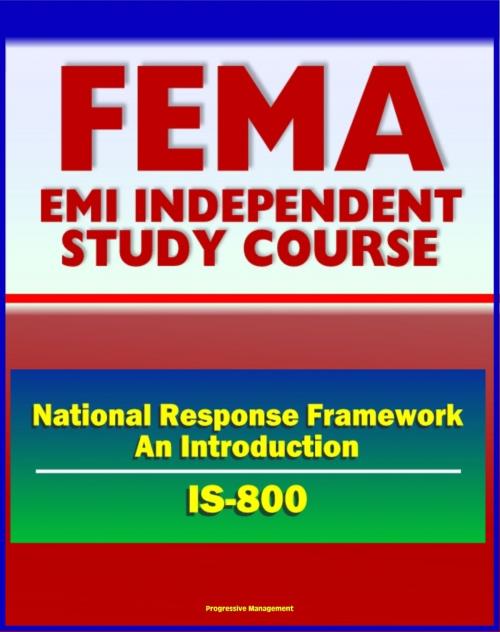21st Century FEMA Study Course: National Response Framework, An Introduction (IS-800) - Emergency Support Functions (ESF), NRF Roles and Responsibilities, Response Actions
Nonfiction, Social & Cultural Studies, Political Science| Author: | Progressive Management | ISBN: | 9781465842435 |
| Publisher: | Progressive Management | Publication: | July 12, 2011 |
| Imprint: | Smashwords Edition | Language: | English |
| Author: | Progressive Management |
| ISBN: | 9781465842435 |
| Publisher: | Progressive Management |
| Publication: | July 12, 2011 |
| Imprint: | Smashwords Edition |
| Language: | English |
This Federal Emergency Management Agency (FEMA) independent training course manual from the Emergency Management Institute (EMI) introduces participants to the concepts and principles of the National Response Framework.
At the end of this course, you will be able to describe:
* The purpose of the National Response Framework.
* The response doctrine established by the National Response Framework.
* The roles and responsibilities of entities as specified in the National Response Framework.
* The actions that support national response.
* The response organizations used for multiagency coordination.
* How planning relates to national preparedness.
This course is intended for government executives, private-sector and nongovernmental organization (NGO) leaders, and emergency management practitioners. This includes senior elected and appointed leaders, such as Federal department or agency heads, State Governors, mayors, tribal leaders, and city or county officials – those who have a responsibility to provide for effective response.
Topics covered include: Roles and responsibilities; response actions; response organization planning; extensive glossary; Emergency Support Functions (ESF); local, state, tribal governments.
The Framework provides structures for implementing nationwide response policy and operational coordination for all types of domestic incidents. It can be partially or fully implemented in the context of a threat, in anticipation of a significant event, or in response to an incident. Selective implementation allows for a scaled response, delivery of the resources needed, and an appropriate level of coordination. The Framework is always in effect, and elements can be implemented as needed on a flexible, scalable basis that can help improve response.
This is a privately authored news service and educational publication of Progressive Management.
This Federal Emergency Management Agency (FEMA) independent training course manual from the Emergency Management Institute (EMI) introduces participants to the concepts and principles of the National Response Framework.
At the end of this course, you will be able to describe:
* The purpose of the National Response Framework.
* The response doctrine established by the National Response Framework.
* The roles and responsibilities of entities as specified in the National Response Framework.
* The actions that support national response.
* The response organizations used for multiagency coordination.
* How planning relates to national preparedness.
This course is intended for government executives, private-sector and nongovernmental organization (NGO) leaders, and emergency management practitioners. This includes senior elected and appointed leaders, such as Federal department or agency heads, State Governors, mayors, tribal leaders, and city or county officials – those who have a responsibility to provide for effective response.
Topics covered include: Roles and responsibilities; response actions; response organization planning; extensive glossary; Emergency Support Functions (ESF); local, state, tribal governments.
The Framework provides structures for implementing nationwide response policy and operational coordination for all types of domestic incidents. It can be partially or fully implemented in the context of a threat, in anticipation of a significant event, or in response to an incident. Selective implementation allows for a scaled response, delivery of the resources needed, and an appropriate level of coordination. The Framework is always in effect, and elements can be implemented as needed on a flexible, scalable basis that can help improve response.
This is a privately authored news service and educational publication of Progressive Management.















